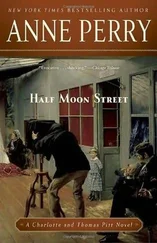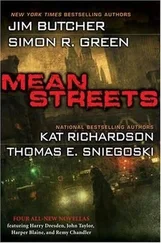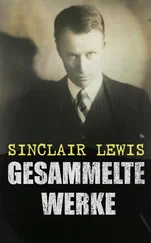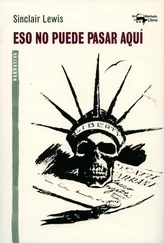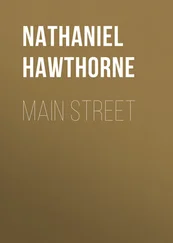Sinclair Lewis - Main Street
Здесь есть возможность читать онлайн «Sinclair Lewis - Main Street» — ознакомительный отрывок электронной книги совершенно бесплатно, а после прочтения отрывка купить полную версию. В некоторых случаях можно слушать аудио, скачать через торрент в формате fb2 и присутствует краткое содержание. Жанр: unrecognised, на английском языке. Описание произведения, (предисловие) а так же отзывы посетителей доступны на портале библиотеки ЛибКат.
- Название:Main Street
- Автор:
- Жанр:
- Год:неизвестен
- ISBN:нет данных
- Рейтинг книги:3 / 5. Голосов: 1
-
Избранное:Добавить в избранное
- Отзывы:
-
Ваша оценка:
- 60
- 1
- 2
- 3
- 4
- 5
Main Street: краткое содержание, описание и аннотация
Предлагаем к чтению аннотацию, описание, краткое содержание или предисловие (зависит от того, что написал сам автор книги «Main Street»). Если вы не нашли необходимую информацию о книге — напишите в комментариях, мы постараемся отыскать её.
libreka classics – These are classics of literary history, reissued and made available to a wide audience.
Immerse yourself in well-known and popular titles!
Main Street — читать онлайн ознакомительный отрывок
Ниже представлен текст книги, разбитый по страницам. Система сохранения места последней прочитанной страницы, позволяет с удобством читать онлайн бесплатно книгу «Main Street», без необходимости каждый раз заново искать на чём Вы остановились. Поставьте закладку, и сможете в любой момент перейти на страницу, на которой закончили чтение.
Интервал:
Закладка:
In her class there were two or three prettier girls, but none more eager. She was noticeable equally in the classroom grind and at dances, though out of the three hundred students of Blodgett, scores recited more accurately and dozens Bostoned more smoothly. Every cell of her body was alive—thin wrists, quince-blossom skin, ingenue eyes, black hair.
The other girls in her dormitory marveled at the slightness of her body when they saw her in sheer negligee, or darting out wet from a shower-bath. She seemed then but half as large as they had supposed; a fragile child who must be cloaked with understanding kindness. "Psychic," the girls whispered, and "spiritual." Yet so radioactive were her nerves, so adventurous her trust in rather vaguely conceived sweetness and light, that she was more energetic than any of the hulking young women who, with calves bulging in heavy-ribbed woolen stockings beneath decorous blue serge bloomers, thuddingly galloped across the floor of the "gym" in practise for the Blodgett Ladies' Basket-Ball Team.
Even when she was tired her dark eyes were observant. She did not yet know the immense ability of the world to be casually cruel and proudly dull, but if she should ever learn those dismaying powers, her eyes would never become sullen or heavy or rheumily amorous.
For all her enthusiasms, for all the fondness and the "crushes" which she inspired, Carol's acquaintances were shy of her. When she was most ardently singing hymns or planning deviltry she yet seemed gently aloof and critical. She was credulous, perhaps; a born hero-worshipper; yet she did question and examine unceasingly. Whatever she might become she would never be static.
Her versatility ensnared her. By turns she hoped to discover that she had an unusual voice, a talent for the piano, the ability to act, to write, to manage organizations. Always she was disappointed, but always she effervesced anew—over the Student Volunteers, who intended to become missionaries, over painting scenery for the dramatic club, over soliciting advertisements for the college magazine.
She was on the peak that Sunday afternoon when she played in chapel. Out of the dusk her violin took up the organ theme, and the candle-light revealed her in a straight golden frock, her arm arched to the bow, her lips serious. Every man fell in love then with religion and Carol.
Throughout Senior year she anxiously related all her experiments and partial successes to a career. Daily, on the library steps or in the hall of the Main Building, the co-eds talked of "What shall we do when we finish college?" Even the girls who knew that they were going to be married pretended to be considering important business positions; even they who knew that they would have to work hinted about fabulous suitors. As for Carol, she was an orphan; her only near relative was a vanilla-flavored sister married to an optician in St. Paul. She had used most of the money from her father's estate. She was not in love—that is, not often, nor ever long at a time. She would earn her living.
But how she was to earn it, how she was to conquer the world—almost entirely for the world's own good—she did not see. Most of the girls who were not betrothed meant to be teachers. Of these there were two sorts: careless young women who admitted that they intended to leave the "beastly classroom and grubby children" the minute they had a chance to marry; and studious, sometimes bulbous-browed and pop-eyed maidens who at class prayer-meetings requested God to "guide their feet along the paths of greatest usefulness." Neither sort tempted Carol. The former seemed insincere (a favorite word of hers at this era). The earnest virgins were, she fancied, as likely to do harm as to do good by their faith in the value of parsing Caesar.
At various times during Senior year Carol finally decided upon studying law, writing motion-picture scenarios, professional nursing, and marrying an unidentified hero.
Then she found a hobby in sociology.
The sociology instructor was new. He was married, and therefore taboo, but he had come from Boston, he had lived among poets and socialists and Jews and millionaire uplifters at the University Settlement in New York, and he had a beautiful white strong neck. He led a giggling class through the prisons, the charity bureaus, the employment agencies of Minneapolis and St. Paul. Trailing at the end of the line Carol was indignant at the prodding curiosity of the others, their manner of staring at the poor as at a Zoo. She felt herself a great liberator. She put her hand to her mouth, her forefinger and thumb quite painfully pinching her lower lip, and frowned, and enjoyed being aloof.
A classmate named Stewart Snyder, a competent bulky young man in a gray flannel shirt, a rusty black bow tie, and the green-and-purple class cap, grumbled to her as they walked behind the others in the muck of the South St. Paul stockyards, "These college chumps make me tired. They're so top-lofty. They ought to of worked on the farm, the way I have. These workmen put it all over them."
"I just love common workmen," glowed Carol.
"Only you don't want to forget that common workmen don't think they're common!"
"You're right! I apologize!" Carol's brows lifted in the astonishment of emotion, in a glory of abasement. Her eyes mothered the world. Stewart Snyder peered at her. He rammed his large red fists into his pockets, he jerked them out, he resolutely got rid of them by clenching his hands behind him, and he stammered:
"I know. You get people. Most of these darn co-eds——Say, Carol, you could do a lot for people."
"Oh—oh well—you know—sympathy and everything—if you were—say you were a lawyer's wife. You'd understand his clients. I'm going to be a lawyer. I admit I fall down in sympathy sometimes. I get so dog-gone impatient with people that can't stand the gaff. You'd be good for a fellow that was too serious. Make him more—more—YOU know—sympathetic!"
His slightly pouting lips, his mastiff eyes, were begging her to beg him to go on. She fled from the steam-roller of his sentiment. She cried, "Oh, see those poor sheep—millions and millions of them." She darted on.
Stewart was not interesting. He hadn't a shapely white neck, and he had never lived among celebrated reformers. She wanted, just now, to have a cell in a settlement-house, like a nun without the bother of a black robe, and be kind, and read Bernard Shaw, and enormously improve a horde of grateful poor.
The supplementary reading in sociology led her to a book on village-improvement—tree-planting, town pageants, girls' clubs. It had pictures of greens and garden-walls in France, New England, Pennsylvania. She had picked it up carelessly, with a slight yawn which she patted down with her finger-tips as delicately as a cat.
She dipped into the book, lounging on her window-seat, with her slim, lisle-stockinged legs crossed, and her knees up under her chin. She stroked a satin pillow while she read. About her was the clothy exuberance of a Blodgett College room: cretonne-covered window-seat, photographs of girls, a carbon print of the Coliseum, a chafing-dish, and a dozen pillows embroidered or beaded or pyrographed. Shockingly out of place was a miniature of the Dancing Bacchante. It was the only trace of Carol in the room. She had inherited the rest from generations of girl students.
It was as a part of all this commonplaceness that she regarded the treatise on village-improvement. But she suddenly stopped fidgeting. She strode into the book. She had fled half-way through it before the three o'clock bell called her to the class in English history.
She sighed, "That's what I'll do after college! I'll get my hands on one of these prairie towns and make it beautiful. Be an inspiration. I suppose I'd better become a teacher then, but—I won't be that kind of a teacher. I won't drone. Why should they have all the garden suburbs on Long Island? Nobody has done anything with the ugly towns here in the Northwest except hold revivals and build libraries to contain the Elsie books. I'll make 'em put in a village green, and darling cottages, and a quaint Main Street!"
Читать дальшеИнтервал:
Закладка:
Похожие книги на «Main Street»
Представляем Вашему вниманию похожие книги на «Main Street» списком для выбора. Мы отобрали схожую по названию и смыслу литературу в надежде предоставить читателям больше вариантов отыскать новые, интересные, ещё непрочитанные произведения.
Обсуждение, отзывы о книге «Main Street» и просто собственные мнения читателей. Оставьте ваши комментарии, напишите, что Вы думаете о произведении, его смысле или главных героях. Укажите что конкретно понравилось, а что нет, и почему Вы так считаете.

